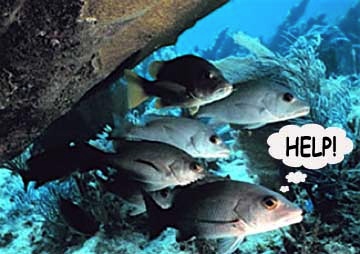CO2 Threat to Marine Life Increasing
Worldwide emissions of carbon dioxide from fossil
fuel burning are dramatically altering ocean chemistry and threatening marine
organisms.

Worldwide emissions of carbon dioxide from fossil fuel burning are dramatically altering ocean chemistry and threatening marine organisms, including corals, that secrete skeletal structures and support oceanic biodiversity. A landmark report released today summarizes the known effects of increased atmospheric carbon dioxide on these organisms, known as marine calcifiers, and recommends future research for determining the extent of the impacts.
“This is leading to the most dramatic changes in marine chemistry in at least the past 650,000 years,” says Richard Feely, one of the authors and an oceanographer at NOAA’s Pacific Marine Environmental Laboratory (PMEL) in Seattle.
Experimental studies…show that coral calcification consistently decreases as the oceans become more acidic. This means that these organisms will grow more slowly, or their skeletons will become less dense, a process similar to osteoporosis in humans. As a result, reef structures are threatened because corals may be unable to build reefs as fast as erosion wears away the reefs.
Several other major ecosystems that are supported by marine calcifiers may be particularly threatened by ocean acidification. These include cold-water reefs, which are extensive structures that provide habitat for many important fish species, particularly in the coastal waters of Alaska.
A .pdf of the report is available here.
The head-in-the-sand crowd won’t be concerned about this. After all, aren’t fish considered brain food?
Posted: Thu - July 6, 2006 at 06:50 AM